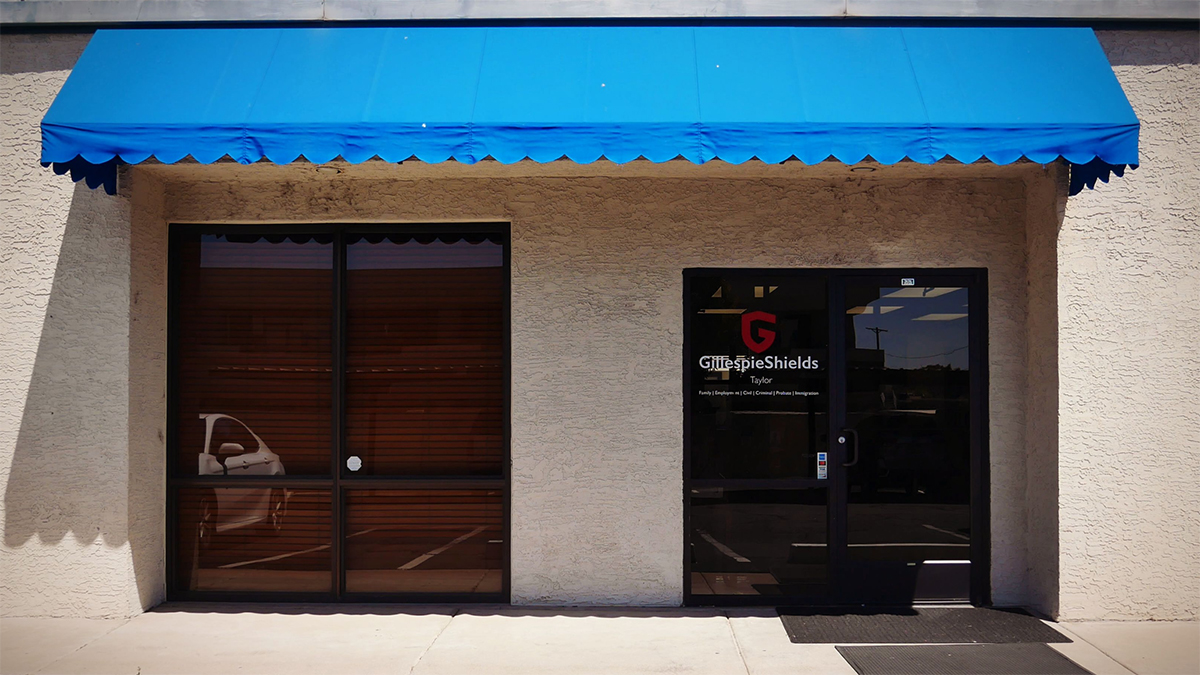
Divorce necessitates a long list of practical decisions on behalf of both spouses, including the question of where each spouse should reside as divorce proceedings begin. Often, divorcing couples choose to separate from one another on a physical basis, as the idea of cohabitating with someone during what is likely an uncomfortable or even tumultuous time may seem unrealistic. However, this choice can lead to a number of questions regarding how to handle their respective living situations, including a debate about who has to leave the house in a divorce.
While it is common for one spouse to move out of the house before or immediately after divorce proceedings begin, which spouse it should be is not always clear. Let’s explore the legal side of this decision and the factors that can shape it.
The State Does Not Explicitly Dictate Who Moves Out During a Divorce
While some states require couples to live apart for a period of time before they can file or finalize their divorce, Arizona has no such requirements. In its place is a 60-day waiting period before a divorce can be finalized. However, there are no state laws or guidelines for who, if anyone, should move out during a divorce.
As with matters such as child custody agreements, estate division, and other aspects of divorce, the court generally encourages both spouses to do their best to reach agreements outside of court to be presented for a judge’s approval rather than rely on litigation to solve the issue. There may be circumstances where one partner poses a danger to household members, but decisions about who does or doesn’t move out of the household are generally left to the spouses to decide.
Coming to a consensus about which spouse can most easily and reasonably move out of the house can be an important first step in a divorce process that will require many instances of compromise. That’s why, in many cases, one spouse voluntarily moves out of the house. Unfortunately, other exits may happen under more argumentative circumstances.
Situations Where the Court May Weigh in On Who Remains in The Home
While there is no official standard for which spouse should stay in the home and which spouse should move out, there are situations where the court will advise spouses regarding how to handle this decision. If a judge makes this decision, the spouse ordered to leave has no right to live in or enter the home without the other spouse’s consent.
Property Rights
Property rights do not automatically dictate who moves out during a divorce, and Arizona community property laws establish that even single-owner properties paid for with mutually owned funds may be community property. However, when one spouse owns and pays the mortgage on their home with separate funds, meaning it is separate property and not community property under state law, they cannot be forced out of their home by a non-owner spouse. They may be awarded the right to remove the other spouse from their home if the subject becomes contentious and is brought to the court for a decision.
However, this may create challenges for the courts when children are involved because the spouse who is removed from their former home would potentially lose meaningful access to their children, depending on the circumstances of the case. Subsequently, a temporary order may be created that could actually grant the non-owner spouse the right to stay in the home until the end of the divorce.
Children and Temporary Orders
During a divorce, a judge may set temporary orders that can establish temporary visitation or custody rights while the divorce is finalized. Even if one spouse owns the home, the other may be granted temporary possession, and the owning spouse must vacate the home. The court has an interest in seeing that children remain in the home environment they are most familiar with, which often corresponds with the home that is safest for them.
Protective Orders
The court may also become involved if one spouse poses a substantial danger to members of the household. A family court judge has the authority to establish a temporary order that bars one parent from remaining or entering the home for the duration of the divorce, even if they are the sole owner. When there is credible evidence that one parent poses a danger to household members, a judge may issue a protective order restricting that parent from living in or coming near the home.
An order of protection may last through the duration of the court proceedings, and many of the restrictions in the order can be included in the final divorce decree if the judge deems it appropriate and necessary.
Should You Move Out of the Family Home During a Divorce?

While there may be no legal requirement for you or your spouse to leave, you may wish to do so to avoid tension and the further deterioration of your relationship. As there is no standard rule in the state of Arizona regarding which spouse should move out, you’ll need to carefully consider the factors involved.
Can You Cohabitate?
There may be relevant reasons for both spouses to remain in the home. For example, doing so could provide stability for children. Cohabitating could also reduce the financial burden of having to rent a second home or apartment. If you can stay in the home, you stand to eliminate the consequences of moving out or requesting that your spouse move out.
Who Can Afford to Move?
If living together is untenable, it’s crucial to consider which spouse can afford the mortgage and upkeep. While you are still responsible for your portion of expenses due to joint responsibility, unless a marital agreement establishes otherwise, divorce and the decision to stay in the home can cause financial upheaval. One spouse will need to add to their existing expenses and pay for other accommodations.
Are Children Involved?
If there are children involved, keeping them in their current home may be a priority. In that case, the parent who has more time and resources to commit to child-rearing may be better suited to remain in the home for the sake of the children. An attorney can be an important resource and ally in determining how to avoid negatively impacting your children during a divorce.
Who Keeps the House When the Divorce Is Finalized?
As with most matters decided during a divorce, the decision about who keeps the house when the divorce is finalized is up to the spouses as long as the home is marital property. In cases where one spouse owns the home outright and has paid for it with funds acquired before the marriage, the owner retains the home. However, the home, like any asset, may need to be sold to produce sufficient cash needed to settle court-related costs or the equitable division of the marital estate.
If the home is jointly owned, the spouses may decide that one party can retain the home, often under the condition that the spouse “buys out” the other spouse for half the value of the home’s equity. In other cases, one spouse may keep the home in return for concessions elsewhere.
If the spouses cannot come to an agreement about who keeps the home, a judge may make a decision over who keeps the home on behalf of the homeowners. It is not uncommon for the courts to order the home to be sold so the equity in the home can be equitably divided between the spouses.
The Role of Legal Counsel During a Divorce Disagreement

Arizona’s community property laws require skilled representation to ensure a fair division of assets. Although each case is unique, securing formidable legal representation greatly improves the chances that your rights are protected throughout the divorce and that the court is aware of your goals, including those for your home.
At Gillespie, Shields & Taylor, our family law attorneys understand that divorce agreements can sometimes seem overwhelming to contemplate, let alone create. That’s why we focus on the needs and interests of our clients every step of the way when providing counsel on important matters, such as who should stay in the house during a divorce. We help clients navigate these and other challenges through negotiation, mediation, or litigation if necessary.
With our firm’s collaborative approach, we draw on the collective expertise of our seasoned attorneys, offering tailored strategies for each case. We are dedicated to securing the best possible outcome while providing compassionate support throughout the process.
Who Leaves the House During a Divorce FAQs
In Arizona, understanding who is expected to leave the house during a divorce can be unclear. An attorney at Gillespie, Shields & Taylor can clarify any questions you may have. Whether the property is jointly owned or belongs to one spouse, the question of who will remain in the home must often be addressed early on.
Below are some frequently asked questions that can help you understand your options and legal rights during this challenging time. If you have further questions or concerns, we welcome you to contact Gillespie, Shields & Taylor to schedule a consultation with one of our knowledgeable and experienced family law attorneys.
Work with a Family Law Attorney You Can Trust

At Gillespie, Shields & Taylor, our skilled family law attorneys can guide you through the complex process of deciding who stays in the house during a divorce. While we offer expertise in many legal areas, including civil suits, employment disputes, and probate cases, family law remains our greatest passion. We work hard to give families peace of mind, whether you’re navigating a divorce, determining child custody, or dealing with other family-related legal matters.
During a private consultation, we’ll answer all your questions about Arizona’s family laws and discuss your unique situation. Contact us today to schedule your consultation, and let us help you find the best path forward.
*Editor’s Note: This article was originally published May 25, 2021 and has been updated November 15, 2024.
Sources:
- Maricopa County Superior Court. (n.d.). Divorce & legal separation. Retrieved from https://superiorcourt.maricopa.gov/departments/superior-court/family/divorce-legal-separation/
- Maricopa County Superior Court. (n.d.). Protective orders. Retrieved from https://superiorcourt.maricopa.gov/llrc/protective-orders/
Family Law Attorney in Phoenix & Mesa
Founded in 1985, GillespieShields is the top family law firm in Phoenix & Mesa. We’re ready to put our years of experience to work to resolve your legal issue.
